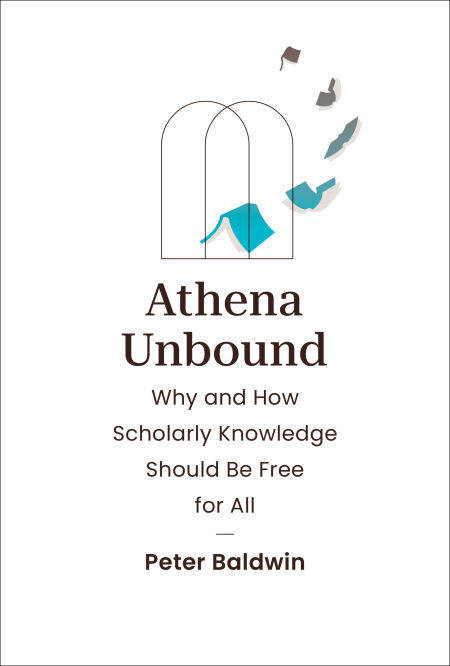
Je cadeautjes zeker op tijd in huis hebben voor de feestdagen? Kom langs in onze winkels en vind het perfecte geschenk!
- Afhalen na 1 uur in een winkel met voorraad
- Gratis thuislevering in België vanaf € 30
- Ruim aanbod met 7 miljoen producten
Je cadeautjes zeker op tijd in huis hebben voor de feestdagen? Kom langs in onze winkels en vind het perfecte geschenk!
- Afhalen na 1 uur in een winkel met voorraad
- Gratis thuislevering in België vanaf € 30
- Ruim aanbod met 7 miljoen producten
Zoeken
Athena Unbound E-BOOK
Why and How Scholarly Knowledge Should Be Free for All
Peter Baldwin
E-book | Engels
€ 34,49
+ 34 punten
Uitvoering
Omschrijving
A clear-eyed examination of the open access movement: past history, current conflicts, and future possibilities.
Open access (OA) could one day put the sum of human knowledge at our fingertips. But the goal of allowing everyone to read everything faces fierce resistance. In Athena Unbound, Peter Baldwin offers an up-to-date look at the ideals and history behind OA, and unpacks the controversies that arise when the dream of limitless information slams into entrenched interests in favor of the status quo. In addition to providing a clear analysis of the debates, Baldwin focuses on thorny issues such as copyright and ways to pay for “free” knowledge. He also provides a roadmap that would make OA economically viable and, as a result, advance one of humanity’s age-old ambitions.
Baldwin addresses the arguments in terms of disseminating scientific research, the history of intellectual property and copyright, and the development of the university and research establishment. As he notes, the hard sciences have already created a funding model that increasingly provides open access, but at the cost of crowding out the humanities. Baldwin proposes a new system that would shift costs from consumers to producers and free scholarly knowledge from the paywalls and institutional barriers that keep it from much of the world.
Rich in detail and free of jargon, Athena Unbound is an essential primer on the state of the global open access movement.
Open access (OA) could one day put the sum of human knowledge at our fingertips. But the goal of allowing everyone to read everything faces fierce resistance. In Athena Unbound, Peter Baldwin offers an up-to-date look at the ideals and history behind OA, and unpacks the controversies that arise when the dream of limitless information slams into entrenched interests in favor of the status quo. In addition to providing a clear analysis of the debates, Baldwin focuses on thorny issues such as copyright and ways to pay for “free” knowledge. He also provides a roadmap that would make OA economically viable and, as a result, advance one of humanity’s age-old ambitions.
Baldwin addresses the arguments in terms of disseminating scientific research, the history of intellectual property and copyright, and the development of the university and research establishment. As he notes, the hard sciences have already created a funding model that increasingly provides open access, but at the cost of crowding out the humanities. Baldwin proposes a new system that would shift costs from consumers to producers and free scholarly knowledge from the paywalls and institutional barriers that keep it from much of the world.
Rich in detail and free of jargon, Athena Unbound is an essential primer on the state of the global open access movement.
Specificaties
Betrokkenen
- Auteur(s):
- Uitgeverij:
Inhoud
- Aantal bladzijden:
- 360
- Taal:
- Engels
Eigenschappen
- Productcode (EAN):
- 9780262373951
- Verschijningsdatum:
- 27/03/2023
- Uitvoering:
- E-book
- Beveiligd met:
- Adobe DRM
- Formaat:
- ePub

Alleen bij Standaard Boekhandel
+ 34 punten op je klantenkaart van Standaard Boekhandel
Beoordelingen
We publiceren alleen reviews die voldoen aan de voorwaarden voor reviews. Bekijk onze voorwaarden voor reviews.









